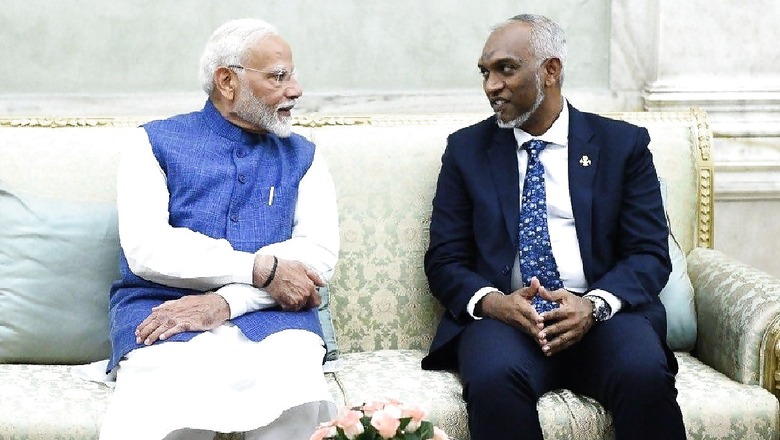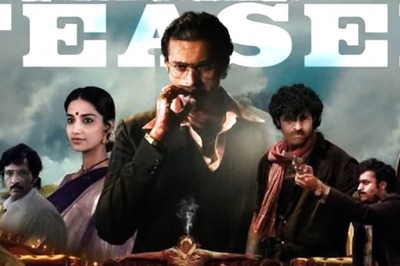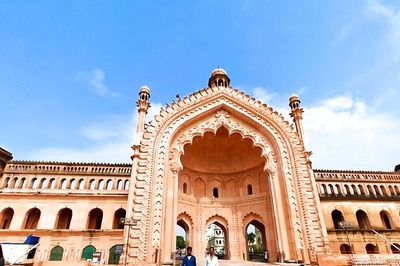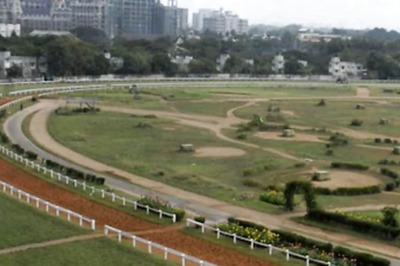
views
As the island nation’s economy teetered on the edge of collapse, reality set in: antagonising India, the region’s most powerful neighbour, was never a viable long-term strategy. This U-turn is not just a Maldivian story—it holds valuable lessons for Nepal, Bangladesh, and Sri Lanka, where certain politicians have flirted with the idea of leaning away from India and towards China.
In January 2024, tensions between India and the newly elected Maldivian government reached their peak. Muizzu, who built his campaign around removing Indian influence from his country, pushed for the exit of a handful of Indian military personnel who were present to operate two Dornier aircraft gifted to the Maldives for humanitarian purposes. These military personnel were later replaced by individuals in civilian clothes.
At one point, his ministers even insulted Prime Minister Modi on social media, calling him a ‘clown’ and ‘a puppet of Israel’. Of course, those ministers were disciplined, but this incident triggered outrage in India. The result? A sharp decline in Indian tourism, which dropped by 42 per cent in just four months. In the last one year, the number of Indian tourists visiting the Maldives dropped by 50,000, resulting in a loss of $150 million. For a country that relies heavily on tourism, particularly from India—its number one source—this was a serious blow.
But Muizzu’s offences kept piling up. He chose to make his first foreign travel to Turkey and then to China, ignoring India. He even signed a $37 million drone deal with Turkey to patrol its waters, something that the Maldives used to partner up with India for. He cosied up with China to such an extent that after returning from there, he called India a bully.
India remained patient throughout the entire saga. Perhaps it had an understanding of Muizzu’s delusions and the reality that he would eventually have to come to terms with. As the largest neighbour in the vicinity, India is the only reliable partner the Maldives can lean on whenever there is trouble. And trouble there is. The Maldives is in the midst of a major foreign exchange crisis. In September, its forex reserves stood at about $440 million, which is only enough for one and a half months of imports. It has been successively downgraded by credit-rating agencies Fitch Ratings and Moody’s, which have forecasted risks of default. Needless to say, the island nation is in dire straits, which explains Muizzu’s shift towards New Delhi. This situation also indicates that China has not been as forthcoming as Muizzu would have wished.
Clearly, reality set in for Muizzu because antagonising India simply wasn’t sustainable. And India dealt with the matter with grace and dare I say, forgiveness. Muizzu was flown into New Delhi in an Indian Air Force aircraft for a five-day state visit. He held a meeting with Prime Minister Modi and it was announced that India would be extending a currency swap loan of $400 million and another of Rs 30 billion. Essentially, under this currency swap agreement, India would be extending help in terms of dollars and the Maldives will be returning the amount at a later date and at a fixed rate in Indian rupees.
Such deals usually ensure very low interest rates, if any. And this is not the first time— India has consistently lent cash to the Maldives to keep its finances in order. Earlier, the State Bank of India rolled over $100 million treasury bills of Maldives. These are critical lifelines for Muizzu, who, only months ago, was alienating India. He has also requested Indian investments in infrastructure and tourism to help revitalise his country’s finances.
Aside from the financial rescue, relations have also improved in other areas of cooperation. The RuPay card was launched in the Maldives and the UPI will be next. Discussions regarding a Free Trade Agreement have opened up. The two leaders also jointly inaugurated a new runway built at the Hanimadhoo Airport, in an airport redevelopment effort in the Maldives that India is financing. Further, the two countries have agreed to deepen their Comprehensive Economic and Maritime Security Partnership. In fact, Muizzu has also agreed to the deployment of Indian “defence platforms and assets” in the Maldives, which is a significant shift from his earlier stand.
Muizzu’s change of heart isn’t just about momentary financial survival. He has now called India the Maldives’ “closest ally” and has even invited Prime Minister Modi for a state visit next year to mark 60 years of diplomatic relations. And his government is once again courting Indian tourists, running a ‘Welcome India’ campaign to regain the business that was lost during the political fallout earlier this year.
All in all, it appears that India-Maldives relations that had hit rock bottom are back on track within months. This brings us to a larger point—what does this episode mean for India’s other neighbours? Certain political leaders in countries like Nepal, Bangladesh, and Sri Lanka often find themselves caught between India and China, attempting to play both sides for maximum gain. But what Muizzu’s case illustrates is that China will never step up to help unless it sees a self-serving opportunity.
India has historically been the Maldives’ lifeline, offering not just financial aid but also medical tourism, education opportunities, and even military assistance when needed. In the face of such commitment, China’s promises ring empty. The KP Sharma Oli government in Nepal and Mohammad Yunus’ caretaker government in Bangladesh will be watching this saga closely and so will the newly elected government in Sri Lanka. The signal from India is that it is never too late to make amends and that it remains committed to its Neighbourhood First policy.
Views expressed in the above piece are personal and solely those of the author. They do not necessarily reflect News18’s views.
















Comments
0 comment